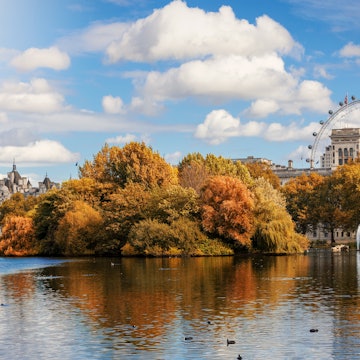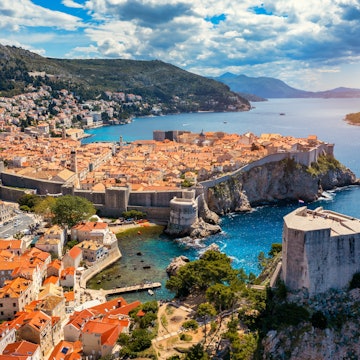

Croatia has kept its visa system fairly easy to navigate © Littleaom / Shutterstock
Croatia is an endlessly appealing destination with sun-drenched beaches, picturesque hilltop towns and atmospheric streets.
Many come for the Dalmatian Coast delights and Istria's rural charms. Others are here for superb hiking routes, treasured national parks, food and drink experiences, or the chance to enjoy hip Zagreb's art, music and cafes.
Thankfully, the government has ensured the country is a breeze to enter for most visitors. Croatia joined the European Union (EU) in 2013 and became part of the free-traveling Schengen Area in January 2023. That means visitors from much of Europe have basically no bureaucracy to deal with.
Travelers from further afield have a few hoops to jump through. For most there's no need for a specific visa to enter Croatia, just yet. From mid-2025 the ETIAS (European Travel Information and Authorisation System) comes into effect.
Here’s our guide to Croatia’s entry requirements, with everything you need to know about whether you need a visa, how to get one and whether you can take a working holiday in Croatia.

Do I need a visa for Croatia?
EU citizens don’t need a visa for stays of any length, they don’t even need a passport providing they have an ID card. The same applies to members of the European Free Trade Association (EFTA): Iceland, Liechtenstein, Norway and Switzerland, that means you.
Many other nations don’t need visas either, but from mid-2025 visitors to Croatia (and most of Europe) will need to apply for the ETIAS travel authorisation before departing. This applies to nearby countries like the UK, Serbia, Montenegro, Kosovo, Bosnia and North Macedonia, as well as people from Canada, the US, most of Latin America, Australia, New Zealand and several Asian nations, including Japan, South Korea and Taiwan.
How often do I need to get an ETIAS?
The ETIAS lasts for three years and costs €7. With it you can enter the territory of 30 European countries as often as you want for short-term stays (normally for 90 days in any 180-day period). You also need a passport that's valid for at least three months after the date you plan to leave. The application is expected to be approved in hours but it's always best to apply ahead of time in case there is any bureaucratic hold-up.

How do I apply for a Croatian tourist visa?
Of course, not every nationality is able to travel to Croatia visa-free. Everyone else – including citizens of China, India, Pakistan, Russia, Turkey and South Africa, will need visas to enter the country. For a complete list, check the website of Croatia’s Ministry of Foreign and European Affairs – you can use the drop-down to find individual nations.
The site has details for individual countries’ requirements and embassy locations. Most pages also link to the relevant VFS Visa Application Centre page, where you can find out costs (visas are usually €80 plus fees for applicants ages 12 and older, €40 for children aged between six and twelve, and no charge for kids under six), and start the application process.
Applications for tourist or business visas (both of which are valid for 90 days) should be started online, although they may eventually need to be submitted in person at an embassy, consulate or VFS Visa Application Centre. You’re recommended to start an application no more than three months before your trip starts.
Visas may sometimes be issued at the border, but this is only under exceptional circumstances and is unlikely to be worth the risk of being turned away.
You can bring in a vehicle if your paperwork is satisfactory, and the normal EU rules apply when bringing animal products into the country.
Can I extend a Croatian visa?
Citizens of the EU and EFTA, as well as Swiss nationals, can stay as long as they like. Citizens of other countries – whether they’re traveling visa-free, on a tourist visa or on a business visa – can only spend 90 days in the country over a 180-day period. There are a few exceptions:
visas may be extended for serious personal circumstances;
longer stays may be possible for people who take seasonal employment or study in the country;
workers who intend to settle in Croatia may apply for residency.

Can I work in Croatia?
If you’re from the EU or EFTA (or you’re Swiss), you can work in Croatia.
People from outside the EU may be able to work in Croatia. Still, you’ll need to be supported by your employer and meet the requirements of the Croatian Employment Service – essentially proving you’re filling a gap in the Croatian workforce. Highly qualified workers who intend to make their home in Croatia may qualify for an EU Blue Card.
The rules are more relaxed for seasonal employment in agriculture, forestry, catering and tourism, where a job offer alone may be enough for a 90-day stay.

You may be eligible for a digital nomad visa in Croatia
Keen to swap your normal working environment for a Zagreb cafe or an apartment overlooking the Adriatic? Digital nomads working for themselves or a non-Croatian company may be able to stay for up to a year if they meet the application form requirements.
















